I decided to pursue a career as a coach a year after finishing my footballing experience, because I wanted to take some time out, to travel and to be closer to my family, my wife and my three children. So I wanted to take a break to have time to enjoy all this. At the end of this period, in 2017, I decided to return to Italy and start the UEFA B course in Coverciano.
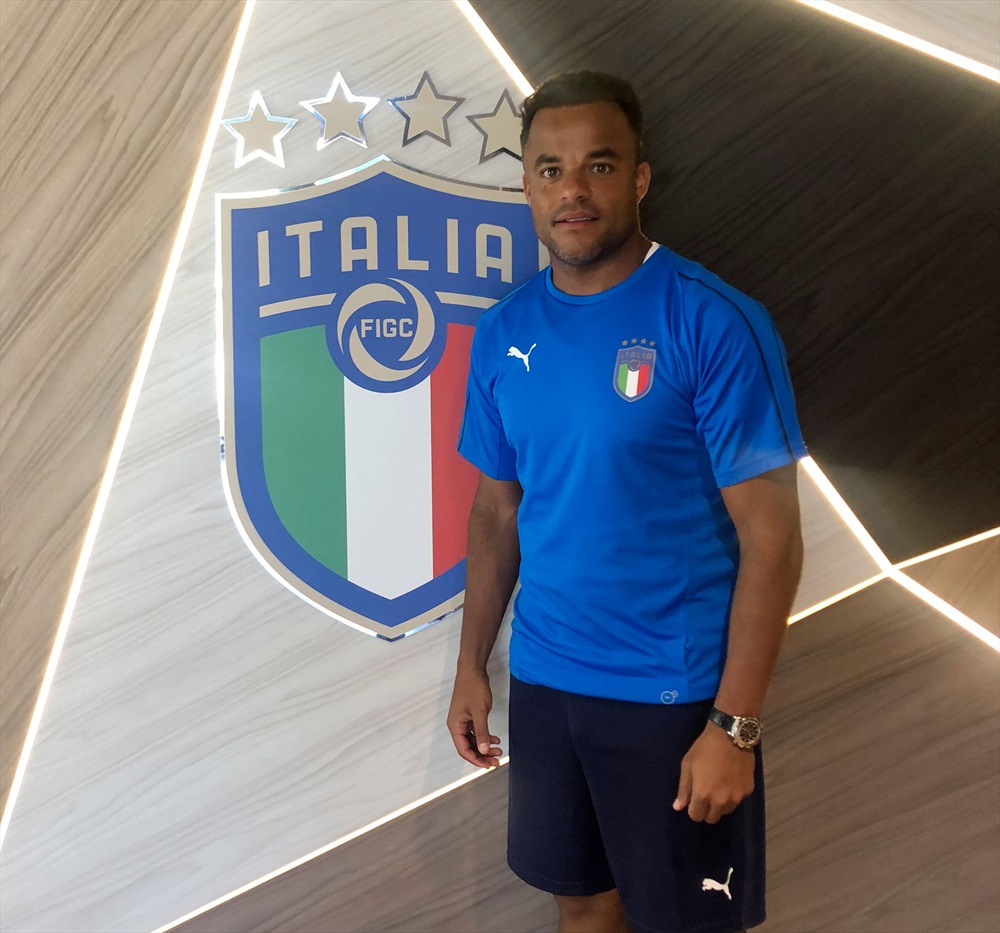
It was a period where I dealt with a lot of theory, and so I needed to practice: I therefore started an experience on the Foggia bench. Although it was quick, fast, it was still an important experience, which enriched me a lot.
Back in Brazil I became the manager of Villa Nova, but it was very difficult as it was in a minor league and had no budget. However, it was a vital step in my career as a coach, because I had the chance to improve my relationship with the players, to explain the training on the tactics board. There I realised that giving and receiving orders are two completely different things, so practising gives you a lot from this point of view.
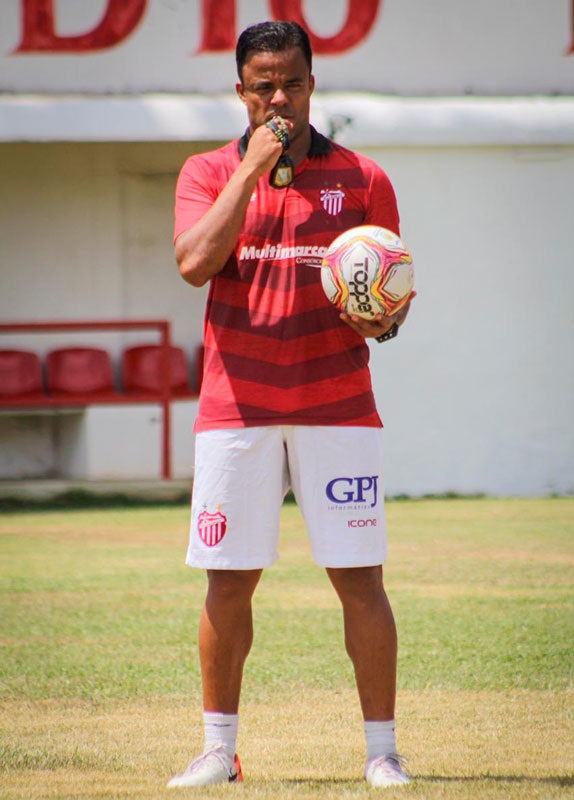
Later I also held the role of technical co-ordinator of Betim for five months, a team that plays in the 2nd section of the Minero league. That was an equally important experience, and that I was pleased to have, because it allowed me to deepen my knowledge of the world outside the game, how a director, team manager and co-ordinator works, and to test the gap between players and clubs.
In Coverciano I got my UEFA B, UEFA A and UEFA PRO licences, but above all I was lucky enough to take part in company with many friends with whom I have bonded during my time as a player. There were Chivu, Cassetti, Morgan De Sanctis, Luca Toni, the Brazilian Silvinho and the legend Toninho Cerezo. Besides studying I had the opportunity to have a lot of fun, because we spent our free time exchanging stories about the locker room and when we played.
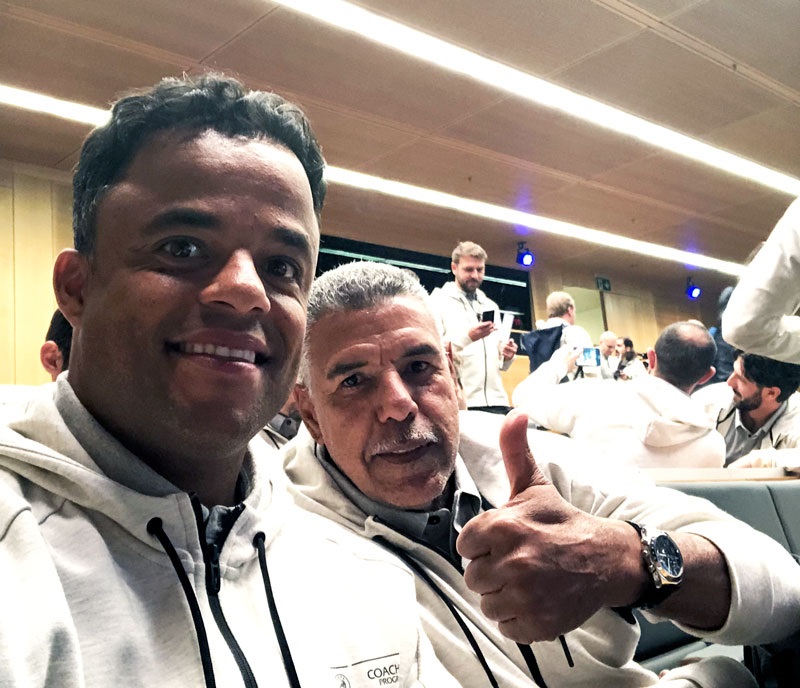
But above all, a course in Coverciano gives you a lot, it enriches you, because in Italy there is a culture of tactical preparation that is complete and unparalleled in the rest of the world. When you get out of there you do it with incredible amount of baggage, and you start thinking about football in a very different way from when you wear football boots.
I therefore confirmed my idea of becoming a coach. I would like to be one of those people who are very flexible on tactics, able to adapt to circumstances. I think it all depends on the players you have at your disposal, the raw material you have in your hands; you have to make them all at ease in the tactical module according to their qualities. Then, of course, what must never be lacking is motivation, and with that you have to be born. I have always been an extremely motivated player every time I went out on the pitch, and I want to convey this attitude to my boys.
I feel that my previous experience as a footballer, what I experienced in the locker room, has given me a lot. If you have been a footballer, when you sit on the bench you can face problems with the players precisely because they are the same dynamics that you have experienced firsthand.
You can see inside their heads, understand what they think and what they don't think, so living in the locker room prepares you as much as the experience of Coverciano. If you manage to mix the two things, it's a good marriage for a career as a coach.
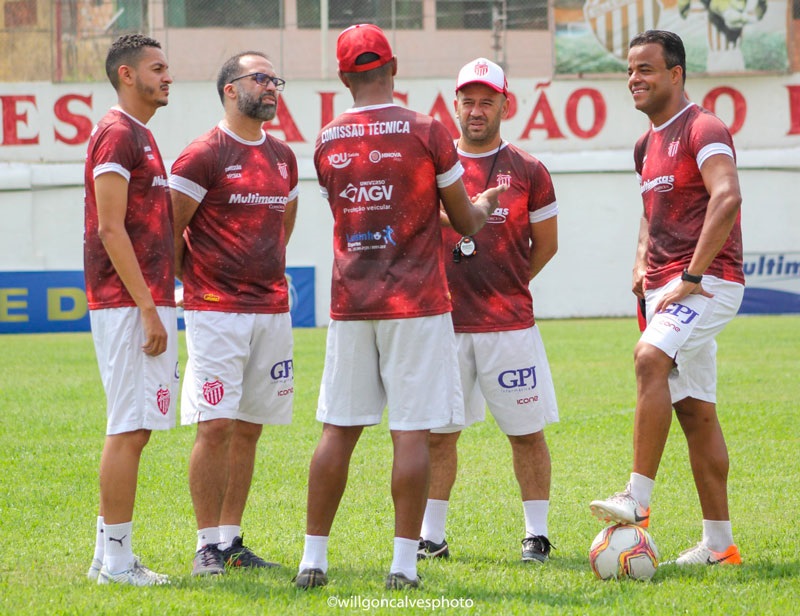
In my career on the pitch I have been very lucky; I have had some of the greatest coaches of my time, such as Fabio Capello, Luciano Spalletti and José Mourinho. The last of those is a real motivator, unique in knowing how to communicate, but he is obviously also one who has studied a lot, highly trained in tactics. He spurs on you by touching the right chords.
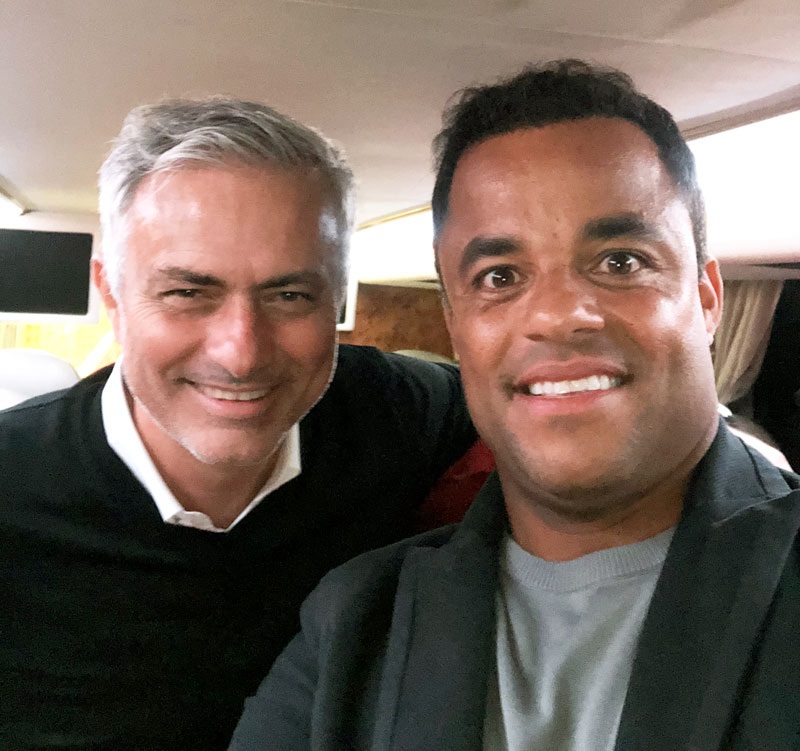
Spalletti is the one I got on with best. He taught me football and tactics, I was lucky to learn from him patterns and instructions on the pitch, and we still maintain an excellent relationship.
As a coach I will always carry their teachings with me, which I will try to combine with my thoughts and my idea of football that I have developed during my courses.
Every coach has the duty to manage the locker room by taking care of human relationships. Footballers are all human beings before being professionals, a dimension that always takes a back seat. Personally, I like it, I am predisposed to face up to them and listen to their needs, so as to look for a way to meet them and help them in their professional careers.
Speaking of tactics, I don't have a real favourite form; it always depends on the individual players available and their attitudes, but I can certainly say that I'm always fascinated by setting up my team on a 3-5-2 or 4-2-3-1, the module I played with for many years in Rome under Spalletti. The important thing is to have players who are able to adapt. But it is equally important to prepare matches on the basis of who you are facing, and to confirm this reading as quickly as possible once you go out on the pitch.
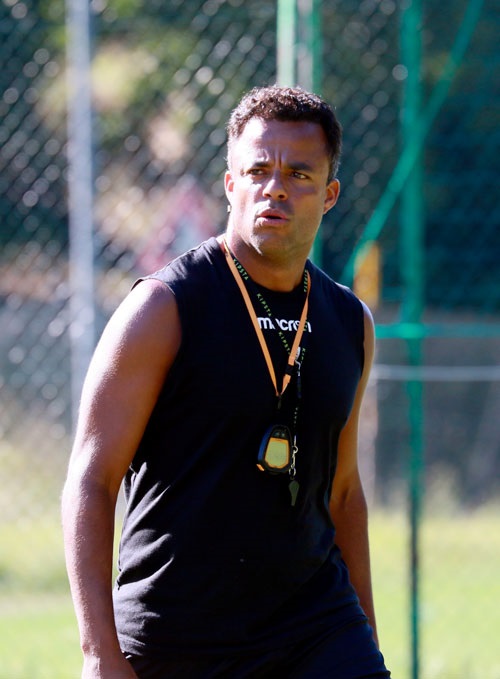
Unfortunately, it seems to me that lately football has lost its creativity, and even the Brazilian football that I watch every day gives me the impression that the players have become a bit too “robotised”. I believe that coaches should let the players go more freely, encouraging those with verve, the more technical and imaginative ones, to show their qualities in dribbling - especially in the last 30-40 metres towards the opponent's goal.
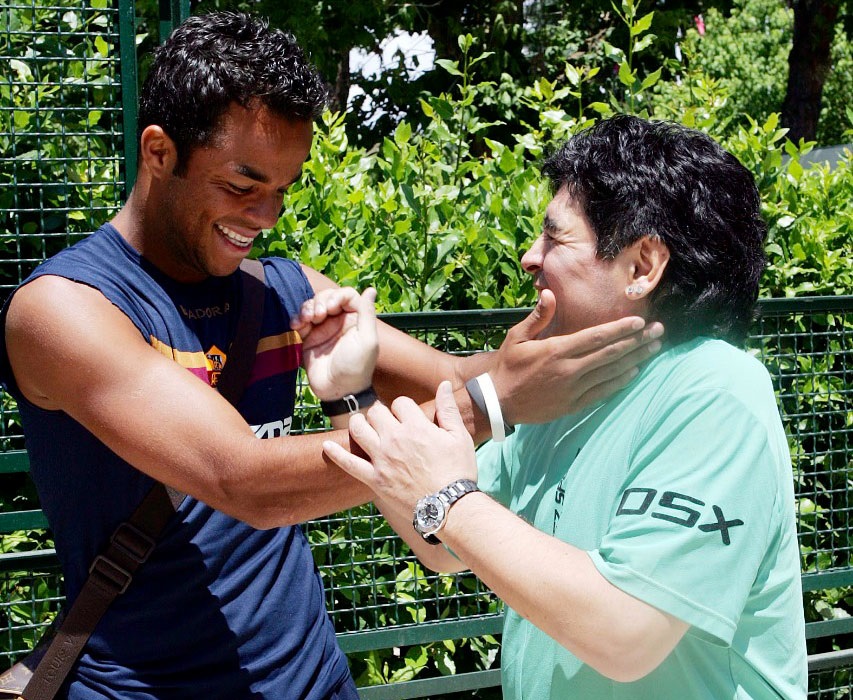
Obviously, the physical question in today's world is fundamental - it's really needed, but I will always be someone who prefers creativity over brute force. Players with such quality enchant me, but certainly physical strength and willpower must never take a back seat.
I also believe that in the teams there must always be a right mix between young people and experienced players. A team solely made up of young people certainly struggles, it fails to express themselves at its best, and there is always a need for someone older who can support and instil confidence, that when you come across a difficult moment (of the match or of the season) is able to control emotions and tension more.
At the moment the championship that I think is the best is definitely the English one, where play is not characterised not only by physical strength, but also by technical quality. Also from an economic point of view, with fair distribution of income, their federation has been good at attracting the most technical players from all over the world, allowing the formation of several highly competitive teams, made up of experienced and interesting players.
Brazil has always been a country with a league capable of hosting good, strong and imaginative players, but objectively now we are experiencing a difficult time, with a generation not quite as talented as the previous ones were. Nonetheless, we are still a football school capable of producing many promising young people.
My dream is certainly to become one of the best coaches in Brazil and - why not - one day to be able to sit on the bench of the green and gold National team. But I would also love to sit on some of the top benches in Europe, a continent where there is an incredible number of stimulating situations for those who, like me, have decided to do this job.
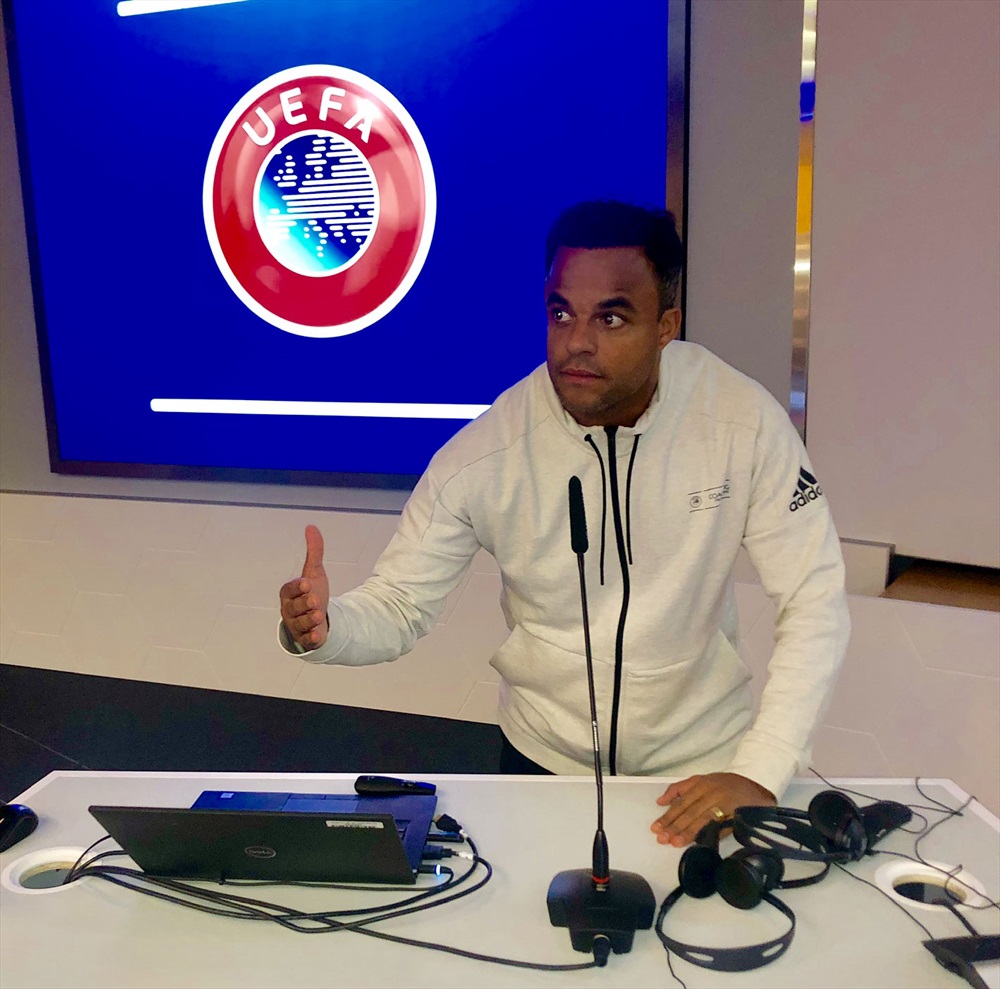
Obviously, the road is long and difficult, but I don't intend to give an inch!